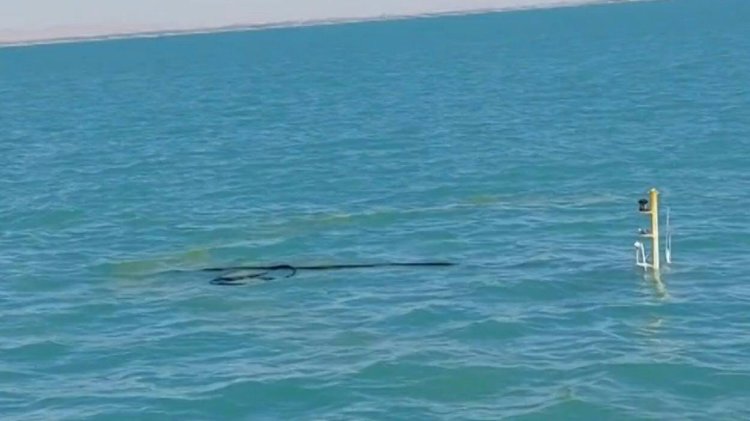Divers inspect fuel-laden ship sunk off Tunisia

Divers on Sunday inspected the hull of a tanker loaded with 750 tonnes of fuel that sank off southeastern Tunisia, with no leak detected so far, officials said.
"With the improvement in weather conditions, a team of divers accompanied by the ship's captain and engineer who know its layout are on site to examine the hull," Mohamed Karray, spokesman for the court in Gabes city, which is investigating Saturday's sinking, said.
The Equatorial Guinea-flagged Xelo was travelling from Egypt to Malta when it went down.
Images released by the environment and defence ministries showed divers heading for the site in the Gulf of Gabes, and then getting into the water at the scene that has been sealed off by Tunisia's military.
Defence ministry photos showed the vessel largely submerged.
The crew of the Xelo had issued a distress call on Friday evening and sought shelter in Tunisian waters from bad weather before going down, authorities said.
Environment Minister Leila Chikhaoui, who travelled to the port of Gabes on Saturday to help oversee the response, said the situation was "under control".
"We think the hull is still watertight and there is no leakage for the moment," she said.
As a precaution, protective booms to contain any oil slick have been placed around the wreck.
The Tunisia branch of the World Wildlife Fund expressed concern about another "environmental catastrophe" in the region, an important fishing zone which has already suffered from pollution.
The tanker is 58 metres long and nine metres wide, according to ship monitoring website vesseltracker.com.
It began taking on water around seven kilometres (four miles) offshore in the Gulf of Gabes and the engine room was engulfed, according to the environment ministry.
It said Tunisian authorities rescued the seven-member crew, who received first aid and were being accommodated in a hotel.
The area where the ship went down was a "fishing ground for 600 sailors", adding that the wider Gulf of Gabes provided employment for around 34,000 fishermen who had already been contending with chemical pollution for decades.
The last maritime accident involving the country was in October 2018, when Tunisian freighter Ulysse slammed into the Cyprus-based Virginia anchored about 30 kilometres off the northern tip of the French island of Corsica, sending hundreds of tonnes of fuel spilling into the Mediterranean.















